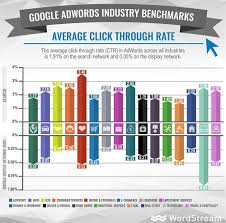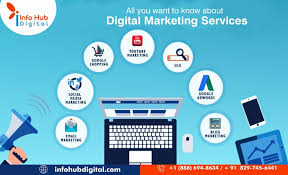The Power of PPC in Digital Marketing
Pay-Per-Click (PPC) advertising is a powerful tool in the realm of digital marketing. It offers businesses a targeted and cost-effective way to reach their audience, drive traffic to their websites, and ultimately boost conversions.
PPC works on a simple principle – advertisers pay a fee each time their ad is clicked. This model allows businesses to bid for ad placement in search engine results or on websites, ensuring that their ads are displayed to users actively searching for relevant products or services.
One of the key advantages of PPC is its ability to provide instant visibility. Unlike organic search efforts, which can take time to yield results, PPC campaigns can generate immediate traffic and leads for businesses. This makes it an ideal strategy for companies looking to quickly increase their online presence.
Moreover, PPC offers precise targeting options that allow businesses to tailor their ads based on factors such as location, demographics, interests, and keywords. This level of targeting ensures that ads are shown to the most relevant audience, increasing the likelihood of engagement and conversion.
Another benefit of PPC is its measurable nature. Through analytics tools, businesses can track the performance of their campaigns in real-time, gaining valuable insights into metrics such as click-through rates, conversion rates, and return on investment. This data-driven approach enables businesses to optimise their campaigns for maximum effectiveness.
In conclusion, PPC is a versatile and effective tool in the digital marketing arsenal. By leveraging its targeting capabilities, instant visibility, and measurable results, businesses can drive traffic, increase brand awareness, and achieve their marketing goals efficiently.
Top 9 Frequently Asked Questions About PPC in Digital Marketing
- What is PPC in digital marketing?
- How does PPC advertising work?
- What are the benefits of using PPC in digital marketing?
- Is PPC suitable for all types of businesses?
- How can I create a successful PPC campaign?
- What is the difference between PPC and SEO?
- How can I measure the success of my PPC campaigns?
- Are there any common mistakes to avoid in PPC advertising?
- What budget should I allocate for a PPC campaign?
What is PPC in digital marketing?
PPC, short for Pay-Per-Click, is a fundamental concept in digital marketing that involves advertisers paying a fee each time their ad is clicked. This model allows businesses to bid for ad placement on search engine results pages or websites, ensuring that their ads are displayed to users actively searching for relevant products or services. PPC provides businesses with a targeted and cost-effective way to reach their audience, drive traffic to their websites, and ultimately boost conversions. Its instant visibility, precise targeting options, and measurable results make PPC a powerful tool for businesses looking to increase online visibility and achieve their marketing objectives efficiently.
How does PPC advertising work?
PPC advertising works on a pay-per-click model, where advertisers bid on specific keywords relevant to their target audience. When users search for these keywords on search engines like Google, ads related to those keywords are displayed. Advertisers pay a fee only when their ad is clicked, hence the name “pay-per-click.” The ad placement is typically determined by a combination of bid amount and ad quality score. This model ensures that businesses can reach potential customers who are actively searching for products or services similar to what they offer. PPC advertising provides businesses with a targeted and measurable way to drive traffic to their websites, increase brand visibility, and ultimately achieve their marketing objectives.
What are the benefits of using PPC in digital marketing?
Utilising Pay-Per-Click (PPC) in digital marketing offers a myriad of benefits for businesses. One key advantage is the ability to target specific audiences based on factors such as demographics, interests, and keywords, ensuring that ads reach the most relevant users. Additionally, PPC provides instant visibility and can generate immediate traffic to websites, making it an ideal strategy for businesses looking to increase their online presence swiftly. The measurable nature of PPC allows for real-time tracking of campaign performance, enabling businesses to optimise their strategies for maximum effectiveness and achieve a high return on investment.
Is PPC suitable for all types of businesses?
The question of whether PPC is suitable for all types of businesses is a common one in the realm of digital marketing. While PPC can be a highly effective strategy for many businesses, its suitability depends on various factors such as the industry, target audience, budget, and marketing objectives. In general, PPC is well-suited for businesses looking to drive immediate traffic, increase brand visibility, and generate leads or sales quickly. However, certain industries with highly competitive keywords or low-profit margins may find it challenging to achieve a positive return on investment through PPC alone. Therefore, it is essential for businesses to assess their specific needs and goals before determining if PPC is the right fit for their marketing strategy.
How can I create a successful PPC campaign?
Creating a successful PPC campaign in digital marketing requires careful planning and strategic execution. To begin, it is essential to conduct thorough keyword research to identify relevant and high-performing keywords that align with your business objectives. Crafting compelling ad copy that resonates with your target audience is crucial for driving engagement and conversions. Setting clear campaign goals, defining key performance indicators, and regularly monitoring and optimising your campaign based on data insights are also vital steps in ensuring success. Additionally, testing different ad formats, targeting options, and landing pages can help refine your strategy and improve campaign performance over time. By continuously analysing results, adapting to market trends, and staying abreast of best practices, you can create a successful PPC campaign that delivers tangible results for your business.
What is the difference between PPC and SEO?
In the realm of digital marketing, a frequently asked question revolves around the distinction between Pay-Per-Click (PPC) and Search Engine Optimisation (SEO). While both strategies aim to increase online visibility and drive traffic to websites, they operate in distinct ways. PPC involves advertisers paying for each click on their ads displayed in search engine results or on websites, providing instant visibility but requiring ongoing investment. On the other hand, SEO focuses on optimising website content and structure to improve organic search rankings, leading to sustainable long-term results without direct payment for clicks. Understanding the nuances between PPC and SEO is crucial for businesses seeking to develop a comprehensive digital marketing strategy that effectively targets their audience and achieves desired outcomes.
How can I measure the success of my PPC campaigns?
Measuring the success of your PPC campaigns is crucial for evaluating their effectiveness and optimising future strategies. Key performance indicators (KPIs) such as click-through rates, conversion rates, cost per acquisition, return on ad spend, and quality score can provide valuable insights into the performance of your campaigns. By analysing these metrics alongside your campaign goals and objectives, you can determine the impact of your PPC efforts and make informed decisions to improve results. Utilising analytics tools and tracking platforms allows you to monitor campaign performance in real-time, identify areas for improvement, and adjust your strategies to maximise success. Regularly reviewing and refining your PPC campaigns based on data-driven insights is essential for achieving long-term success in digital marketing.
Are there any common mistakes to avoid in PPC advertising?
When it comes to PPC advertising in digital marketing, there are several common mistakes that businesses should strive to avoid. One prevalent error is failing to conduct thorough keyword research, which can result in ads being displayed to the wrong audience. Another mistake is setting unrealistic budget expectations or not monitoring campaign performance regularly, leading to overspending or underperformance. Additionally, neglecting ad copy quality, targeting the wrong audience, and disregarding conversion tracking are all common pitfalls that can hinder the success of a PPC campaign. By being aware of these mistakes and taking proactive measures to address them, businesses can enhance the effectiveness of their PPC advertising efforts and achieve better results.
What budget should I allocate for a PPC campaign?
Determining the budget for a PPC campaign is a common concern for businesses venturing into digital marketing. The ideal budget allocation for a PPC campaign varies depending on factors such as industry competitiveness, target audience, campaign objectives, and desired outcomes. It is recommended to start with a budget that aligns with your goals and expectations, ensuring that it is sufficient to reach your target audience effectively. By carefully analysing your business needs and considering the potential return on investment, you can determine a budget that strikes a balance between affordability and effectiveness in driving results through your PPC campaign.



